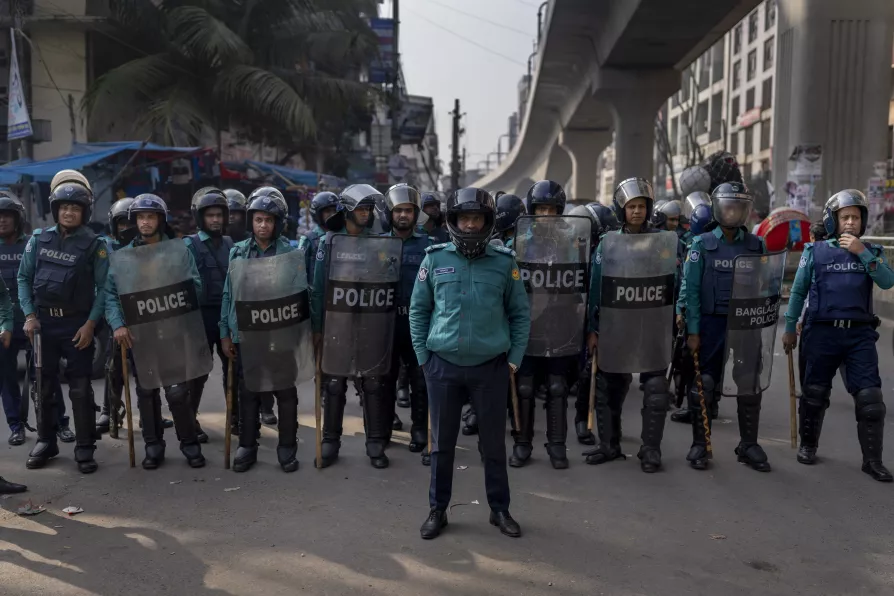Corbyn’s intervention exposes a corrupted system, writes CLAUDIA WEBBE

 Bangladesh policemen stand guard outside Baitul Mukarram mosque for possible protests ahead of Sunday's parliamentary elections, in Dhaka, Bangladesh, January 5, 2024
Bangladesh policemen stand guard outside Baitul Mukarram mosque for possible protests ahead of Sunday's parliamentary elections, in Dhaka, Bangladesh, January 5, 2024
ONE week on from New Year’s Day, Bangladesh is set to hold its 12th general election. Close to 2,000 candidates from 28 parties are going to contest it. However, with 62 political parties including the main opposition Bangladesh Nationalist Party (BNP) as well as the Left Democratic Front (LDF) having boycotted the election, the incumbent Awami League (AL) is sure to win another term.
The BNP has called for a strike on election day. The LDF, which includes the Communist Party, Socialist Party and Socialist Party (Marxist), among others, has also urged voters to boycott the election.
Boycotting elections and rejecting election results is nothing new in Bangladesh. The AL itself had boycotted the 1996 general election in response to its demand for holding the election under a caretaker government being refused by the then ruling BNP.














